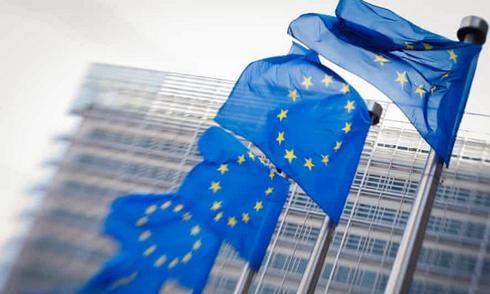The jobs of many employees have been jeopardized as a result of the economic fallout from COVID-19 outbreak. Not only that, but financial prospects of many of the business owners who hire them are also in question.

Consumers, companies, and societies all over the world are concerned about the coronavirus epidemic, which is causing widespread fear and economic instability. Many companies have risk management plans in place, but they may not be comprehensive enough to handle the quickly moving and unpredictable factors of a pandemic like COVID-19.
In 2020, the European economy had a tough time. After declining in the first quarter, it fell by nearly 12% as the pandemic struck Europe full force in the second quarter. This has been preceded by a quick recovery (up 12.4% ) in the third quarter, before a downturn (down 0.7%) in the final quarter as new regulations were introduced. According to initial forecasts, the European economy contracted around 6.8% in 2020.
BusinessEurope’s Autumn Economic Outlook predicted that the EU economy will contract by 7.3 percent in 2020, then rise by 5.0 percent in 2021. According to them, the European economy appears to have developed better in the final weeks of 2020, despite GDP declines in the three biggest economies (Germany, France, and Italy) being marginally lower than expected. As per the latest estimates, a number of EU countries, including Latvia, Lithuania, Luxembourg, and Poland, will be able to fully recover this year.
On the downside, business morale is still poor, and many companies’ financial conditions are deteriorating. The second wave of Covid-19 outbreaks in Europe, as well as the resulting lockdowns, have dominated the news since January. Many companies, especially those in the hospitality and tourism sectors, are experiencing difficulties as a result of the current wave of the pandemic.
For this reason, companies are struggling to find ways to keep their businesses up and working. Some of them are relying on government assistance, others are reducing expenses, while even others are going beyond their normal business activities to try and improve their operations by tracking trends, investing in marketing, improving client retention, or simply empowering employees.
The vast majority of small and medium-sized enterprises have seen a drop in revenue. However, as we could expect, the situation varies by country, reflecting the extent of pandemic measures and their effects on economic activity.
Despite government alerts, several small business owners in Poland are preparing to resist the constraints and reopen their restaurants and tourist sites, fearing the loss of their living standards as a result of the ongoing lockdown.
Travel agency business owners in Germany, after three decades of operating their business, have scrapped plans to hand it over to a successor. They claim that without revenue coming in, they’ll have to close one of their two stores, cut jobs, and handle the majority of the workload themselves to keep their company afloat.
Gym closures in Europe are affecting gym operators as a result of the coronavirus outbreak. By negotiating rent with tenants, Pure Gym is reducing cash burn and boosting its liquidity role. The corporation is also taking advantage of government assistance programs such as 80 percent compensation for employee costs, a 1-year corp tax holiday, and tax deferral.
Spain’s hospitality market, which is suffering the effects of the coronavirus pandemic’s economic consequences, is facing its toughest months since the country’s first state of alert in June. This year, according to the largest hospitality industry lobby, 85,000 companies are in jeopardy. “We are losing money in the business, but we are still taking care of our bills. We can only last for a few months, maybe two or three months, I don’t think we will last much longer,” Jose Manuel del Moral, a bartender at his husband’s Madrid bar “Zarpa,” said.
In most nations, schools and kindergartens have remained open throughout the winter, and remote working has become common. Such causes, combined with a better than expected third period, offered an extra buffer for the second-half economic losses.
Officials from the European Central Bank estimate that Europe’s economic performance will only hit 2019 levels in 2022. From here on out, governments in Europe will take different approaches to fund their small businesses Their level of assistance will also vary, with a lot depending on local market conditions.


